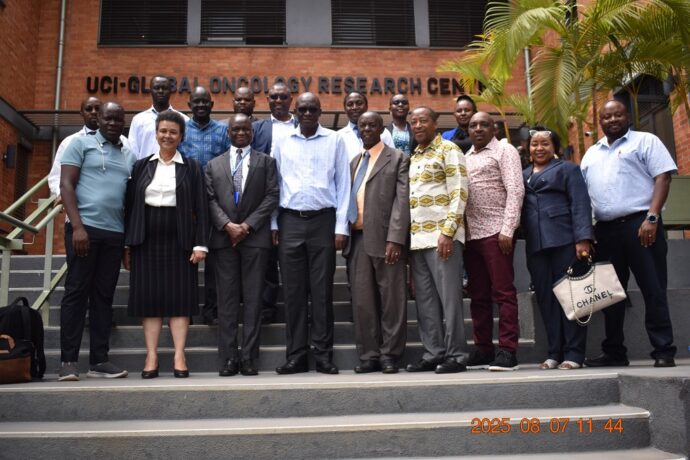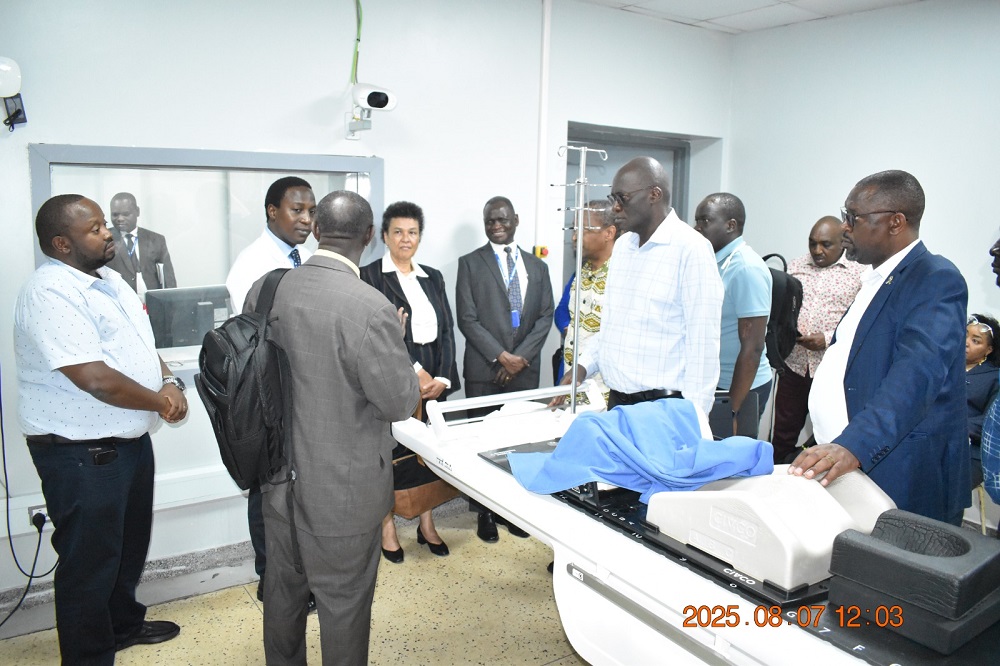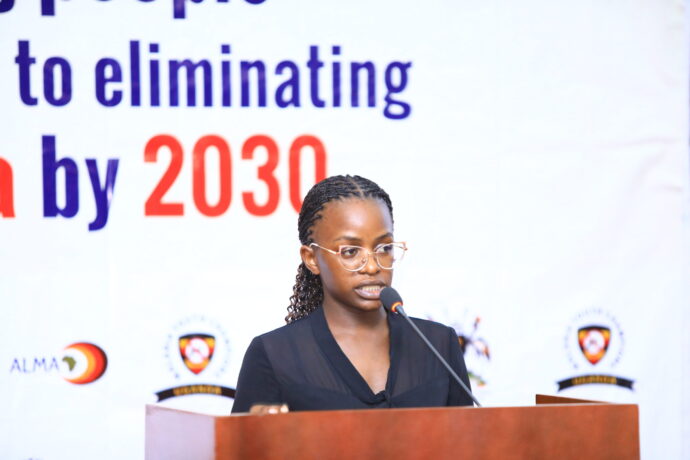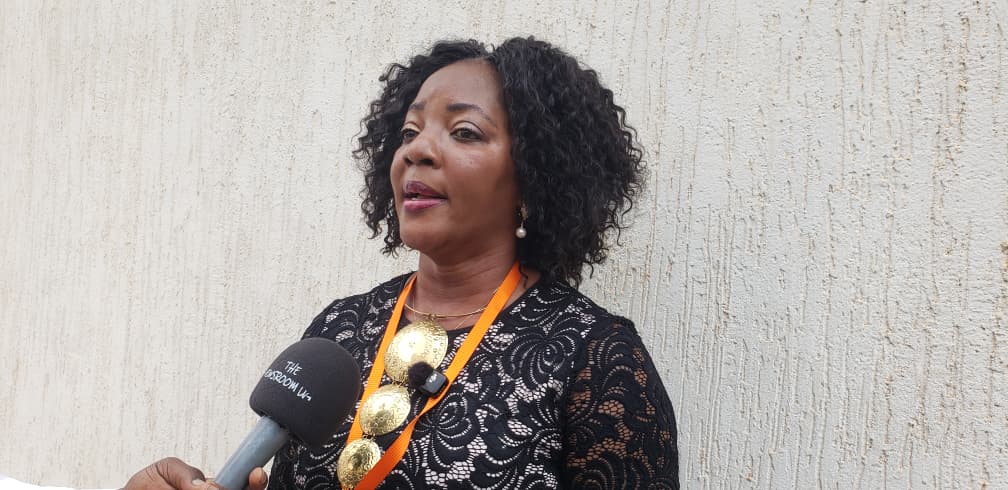
The Uganda Cancer Institute (UCI) today welcomed a high-powered delegation from the Ministry of Health of the Republic of Kenya, led by Dr. Patrick Amoth, Director General of Health Services, as part of a strategic initiative to foster cross-border collaboration in cancer research, training, and care.
The visit aimed to explore areas of mutual cooperation between Uganda and Kenya in addressing the growing burden of cancer and other non-communicable diseases (NCDs) across the East African region.
During the engagement, the delegation held in-depth discussions with UCI leadership, including Executive Director Dr. Jackson Orem, and heads of key departments. The talks focused on strengthening bilateral ties in oncology research, data sharing, cancer surveillance, clinical trials, and workforce development.
“Regional partnerships are critical in boosting cancer research capacity, fostering innovation, and improving patient outcomes,” said Dr. Orem. “Uganda, Kenya, and Tanzania share unique experiences and expertise that, when combined, can significantly accelerate progress in cancer control.”
Dr. Amoth commended UCI for its regional leadership in cancer care and research, and expressed Kenya’s strong interest in formalizing collaborative frameworks to advance joint cancer control efforts.
“We are impressed by the Uganda Cancer Institute’s integrated approach to cancer care and research,” Dr. Amoth remarked. “We look forward to establishing structured partnerships that will benefit our countries and the broader region.”
The Kenyan delegation toured UCI’s cutting-edge facilities, including the Clinical Trials Unit, Radiotherapy Department, and the East Africa Oncology Centre of Excellence. The team expressed admiration for UCI’s model that seamlessly integrates research with patient care and leverages both regional and international partnerships.
This high-level visit marks a significant step toward fostering regional solidarity in the fight against cancer, with both institutions reaffirming their shared vision to reduce the cancer burden in East Africa through joint action, evidence-based strategies, and innovation.






